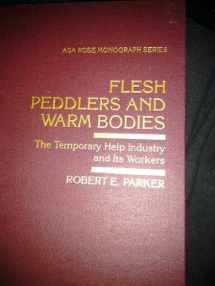
Flesh Peddlers and Warm Bodies: The Temporary Help Industry and Its Workers (ARNOLD AND CAROLINE ROSE MONOGRAPH SERIES OF THE AMERICAN SOCIOLOGICAL ASSOCIATION)
Book details
Summary
Description
Several recent books have touted the benefits of working as a temporary employee, but now Parker, an associate professor of sociology at the University of Nevada at Las Vegas and onetime temp himself, portrays a dark side to the temporary-help industry. In spite of its title, this book is a scholarly look at what Parker calls "contingent work." He identifies the major companies in the industry, profiles who become temps, and describes where temporary workers are most heavily utilized. While acknowledging advantages for some workers, he also describes negative aspects of such work: low pay, few fringe benefits and usually no health coverage, irregular hours, underutilization of skills, hazardous working conditions, circumvention of equal opportunity programs, etc. Parker also claims a major reason companies use temps is to undermine labor-organizing efforts. Because temporary workers may actually make up one-third of this nation's workforce, Parker's book will be an important addition to business and labor collections


We would LOVE it if you could help us and other readers by reviewing the book
Book review



